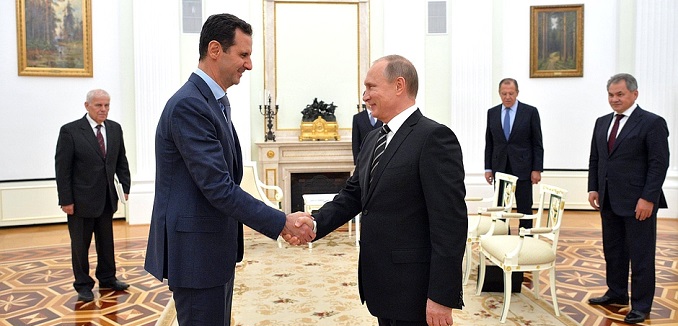David Hazony’s attempt to enter the mind of the president is gripping all the way through, well-structured, and as persuasive as it’s possible to be given the limited evidence and the space constraints. But it is not the only plausible way to interpret the evidence.
I have no theory about Barack Obama’s mind, or even strong intuitions. I note the following only to point out that the policy Obama pursued does not necessarily suggest that “the destruction of Syria is a direct, predictable, and entirely preventable product of Obama’s vision.” It is also possible that his vision was the product of the unpreventable destruction of Syria.
I had no knowledge at all of a secret channel to Iran preceding the public negotiations over its nuclear program. Nonetheless, during the early stages of the Syrian conflict, I came to the conclusion that American intervention was highly unlikely. From the moment Bashar al-Assad gunned down peaceful protesters, I believed Syria was doomed to a horrific civil war that would set the region alight, suck in its neighbors, and threaten European security. I could see no way to stop it, given the constraints under which Obama was operating.
The Syrian refugees I interviewed in July 2011 agreed. We believed this not because we imagined Obama was secretly courting Tehran, but because we assumed Russia, the United States, and Europe feared—reasonably—that should Assad lose power, chaos would ensue. In addition, Syria was a long-term Russian client and of great strategic import to Moscow. I couldn’t imagine Putin surrendering a key client regime in the Mediterranean, nor could I imagine the U.S. entering another conflict in the Middle East if this would put it in direct contact with an increasingly aggressive and hostile Russia. Russia is a country with nuclear weapons and prone to making casual threats of using them. It has revised the borders of Europe by force. It is headed by a man who is not only a risk-taker by temperament, but who needs to keep taking these kinds of risks to survive.
Meanwhile, there was clearly no domestic appetite whatsoever in the United States for intervention. After Iraq and Afghanistan, it was not just Obama who was averse to the idea of an open-ended military campaign that could shackle America with another trillion-dollar nation-building project. Congress and the public were dead set against it. I saw no hope of ending the crisis short of massive American military intervention, but thought such an intervention inconceivable—and I had no idea of the real state of our relationship with Iran.
By February 2012, Syria had descended into full-scale civil war. By then, it seemed to me, any window during which the U.S. might have intervened to forestall disaster had closed. There were few palatable liberal democrats in the Syrian resistance, and domestic American problems precluded another costly foreign intervention. Indeed, I think it is now clear that Obama has been responding to the American electorate’s desire for an isolationist foreign policy. Even the Republican Party, now effectively led by Donald Trump, has embraced this trend.
This was the conclusion I drew entirely independent of any hint that Obama was pursuing a separate peace with Iran. It was a conclusion, in other words, that did not require the qualities of mind Hazony ascribes to Obama.
So yes, in short: Obama lied about the nuclear deal. But Americans were so very eager to be lied to.
In other words, I suspect, this problem goes well beyond Obama’s mind.
Claire Berlinski is a freelance writer who now lives in Paris after nearly a decade in Istanbul. She is the author of There is No Alternative: Why Margaret Thatcher Matters (Basic Books, 2008).
[Photo: Kremlin.ru]




